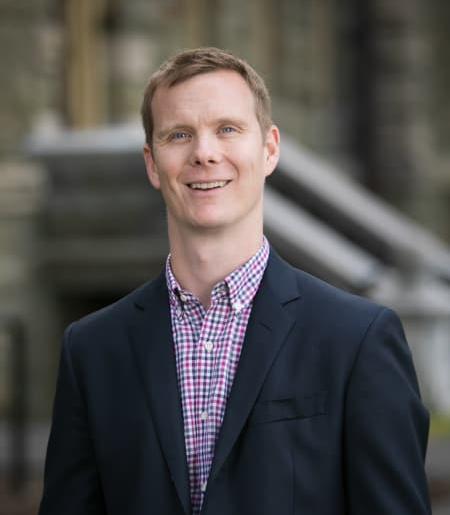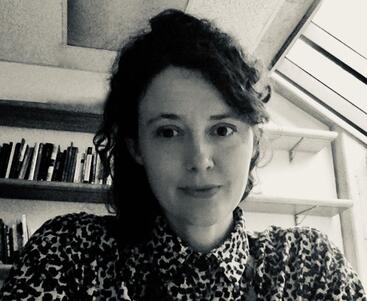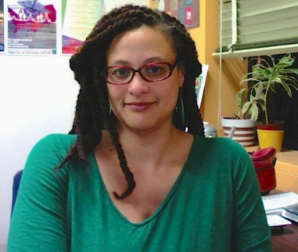Speaker Series
The Political Science Department Speaker Series brings leading scholars to campus to present their research and engage with students and faculty. Each talk highlights the speaker’s substantive focus, methodological approach, and current projects, providing opportunities for discussion, feedback, and collaboration. The series is designed for PhD students, faculty, and anyone interested in deepening their understanding of contemporary political research.
Academic Year 2025-2026 Speaker Series
-
Douglas L. Kriner, Cornell University (6 October 2025)
Douglas L. Kriner
Clinton Rossiter Professor in American Institutions, Department of Government, Cornell UniversityTalk Title: "When Disaster Meets Relief: Partisan Moderation of Crisis and Aid Effects in the 2020 Election:
Details: 12:10-1:30 PM | Monday, October 6, 2025 | INTS 1113Abstract: How do voters respond when a national crisis imposes harm but also delivers federal aid? The COVID-19 pandemic presents a unique test of what considerations voters bring to bear in response to both loss and relief. We theorize that federal spending can mitigate the political costs of disasters, but only under certain partisan and contextual conditions. Specifically, we hypothesize that the electoral effects of pandemic costs and relief will be interactive, and their effects will vary across partisan subgroups depending on whether each factor reinforces or conflicts with partisan priors.
Drawing on county-level data and nationally representative survey evidence from the 2020 U.S. presidential election, we find that pandemic costs and relief had the greatest effects on vote choice among independents who lacked strong partisan priors. Among partisans, exposure to pandemic costs was most influential among Republicans and localized relief was most influential among Democrats. Relief spending also shaped the 2020 election outcome indirectly by mobilizing Republican turnout and changing the composition of the electorate.
Finally, we find strong evidence that the effects of pandemic costs and relief on political behavior are interactive, with the influence of each varying on the level of the other and across partisan subgroups. These findings advance theories of retrospective voting and distributive politics by demonstrating how crisis exposure, partisan identity, and economic relief jointly shape the electoral consequences of national emergencies.
-
Margaret E. Roberts, UC San Diego (3 November 2025)
Margaret E. Roberts
Professor of Political Science, Department of Political Science, University of California, San DiegoTalk Title: "Propaganda or Parity? TikTok’s Algorithm and Pro-China Messaging"
Details: 12:10-1:30 PM | Monday, November 3, 2025 | INTS 1113 -
Lisa Beard, Western Washington University (17 November 2025)
Lisa Beard
Associate Professor, Political Science Department, Western Washington UniversityTalk Title: Identificatory Appeals Against the Grain of Power.
Details: 12:10-1:30 PM | Monday, November 17, 2025 | INTS 1113Abstract: We can understand identification as the processes through which people politically come to understand who they are, what are their interests, and how they are connected to others. To turn to identification is to turn to a supremely messy and rich terrain at the very heart of politics itself. Rather than being a priori and settled, forms of identification (and the identities that they together constitute) are products of politics, ever-unfolding and constantly contested. Forms of identifications are forged and fought over through political appeals, in work that is risky, uncertain, volatile, messy, and historically contingent. Contestations over the we of politics vibrate in many tones – from kinship language, to appeals to national identity, to demonological invocations of dangers and threats that might bind a vulnerable we. What is at stake in these appeals is the possibility of upholding or changing relationships of power.
This talk will ground the study of identification in a close reading of appeals issued in the early 1970s and early 2000s by trans liberation activist Sylvia Rivera, whose countercalls claimed and defended genealogies of transformative multi-issue struggles within a broader contest over what LGBT forms of identification would come to mean politically. Rivera’s appeals not only illuminate the relationship between practices of identification and disidentification and help us think about how access to participating in identificatory struggles is policed, but also leave a powerful record of visions of a we based in mutuality and shared freedom. -
Daniel McDowell, Syracuse University (18 February 2026)
Daniel McDowell
Professor, Political Science Department, Syracuse UniversityTalk Title: To be determined.
Details: to be determined.Abstract: This item is a work in progress.
-
Valentina González-Rostani, USC (3 March 2026)
Valentina González-Rostani
Assistant Professor of Political Science and International Relations, Department of Political Science, University of Southern CaliforniaTalk Title: To be determined.
Details: to be determined.Abstract: This item is a work in progress.
-
Claire Adida, Stanford University (4 April 2026)
Claire Adida
Senior Fellow, Freeman Spogli Institute for International Relations and Professor of Political Science, Stanford UniversityTalk Title: To be determined.
Details: to be determined.Abstract: This item is a work in progress.
-
Jonathan Homola, UCLA (06 May 2026)
Jonathan Homola
Associate Professor, Department of Political Science, University of California, Los AngelesTalk Title: To be determined.
Details: to be determined.Abstract: This item is a work in progress.
-
Julia Park, Ohio State University (18 May 2026)
Ju Yeon (Julia) Park
Associate Professor, Department of Political Science, The Ohio State UniversityTalk Title: To be determined.
Details: to be determined.Abstract: This item is a work in progress.
Academic Year 2022-2023 Speaker Series
-
Jesse Driscoll, UC San Diego (24 April 2023)
Jesse Driscoll
Associate Professor, Department of Political Science and Chair, Global Leadership Institute University of California, San DiegoTalk Title: "Ukraine's Unnamed War"
Details: 12-12:20 PM | Monday, April 24, 2023 | Sky Hall 173Abstract: The roots of the Russian invasion of Ukraine in 2022 trace back to the revolutionary events of 2013–2015. "Ukraine's Unnamed War: Before the Russian Invasion of 2022" argues that Russia, before and after seizing Crimea, was reacting to events it could not control. The Kremlin sent troops only to areas of Ukraine where it knew it would face little resistance (Eastern Donbas), and the end result was a ragged military ceasefire that neither Ukrainians or Russians believed was just. Anchored in a simple model of domestic Ukrainian politics, this book traces efforts by the Kremlin to shape those domestic politics with military threats and coercion -- and how Ukrainians have adapted their institutions to the threat from its Russian neighbor.
-
Alisa Bierria, UCLA (15 May 2023)
Alisa Bierria
Assistant Professors, Department of Gender Studies, University of California, Los AngelesTalk Title: "Structural Racism within Reason"
Details: 12-12:20 PM | Monday, May 15, 2023 | Sky Hall 173Abstract: Alisa examines reasons and the politics of intention through an analysis of structural racism. She discusses two key black feminist critiques of reason — Patricia Hill Collins’ discussion of “controlling images” (2000) and Michelle Cliff’s concept of the “mythic mind” (1982) — to propose "controlling intentions" as a framework to theorize how structural racism produces fictive intentions used to rationalize the criminal punishment of survival and justify that outcome as common sense. As an example, she analyzes how Marissa Alexander’s intentions and intentional actions were replaced by controlling intentions in her 2011 Stand Your Ground hearing to illustrate how reason provides a vehicle through which structural racial/gendered violence becomes naturalized within the law.
-
Paul Apostolidis, London School of Economics & Political Science (10 April 2023)
Paul Apostolidis
Professor, Department of Government, London School of Economics & Political ScienceTalk Title: "Marx and Microwork: Night Work and Social Reproduction in the Factory and on the Platform"
Details: 12-12:20 PM | Monday, April 10, 2023 | Sky Hall 173Abstract: This talk lays foundations for a critique of night work in contemporary capitalism through a novel reassessment of Marx’s analysis of “the working day” in 19th century England. It reads Marx against the grain, gleaning overlooked conceptual resources for understanding night-work’s vampiric devastation of working-class social reproduction, as the rule of capital over the worker’s “life-day” leads to both the quantitative exploitation of workers and qualitative impoverishment of everyday time and freedom. Night comes to represent the contracted time, condensed space, petrified relational capacities and thwarted desires for human “reproduction” that includes reinvigorating oneself, caring for others, and enjoying experiences apart from work or care. I demonstrate the power of this under-developed Marxian analytic by considering the compression and warping of social- reproductive time among today’s “microworkers”: a global legion of labourers who work at all hours earning a pittance doing platform-based online ‘tasks.’ On this basis, the paper argues for making struggles over social reproduction central to working-class politics today..




